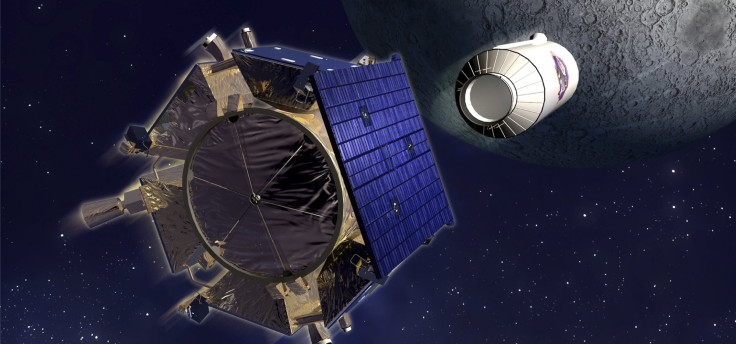Here's Israel's Beresheet Moon Lander's Last Photo Before Crash

The Beresheet, Israel’s first Moon lander, sent back its last picture that revealed cratered lunar ground before it crashed on the Moon's surface.
Got 2ⁿᵈ confirmation from @ILAerospaceIAI. This is the l̲a̲s̲t̲ image #Beresheet sent to earth before it crashed! Telemetry of moment it was taken not available yet, however, image received in mission control when Beresheet was 7.5㎞ above moon surface
— Elad Ratson (@EladRatson) April 12, 2019
🔗https://t.co/Hq9cSgm9JA pic.twitter.com/9UPQ5jeSZv
The robotic Beresheet is the first Israeli probe to travel beyond Earth’s orbit and was the first privately funded Moon lander. Its name was derived from “Beraishit” or “Genesis,” which translates to “In The Beginning.” The Moon lander made a short historic touchdown on April 11, but it crashed into the lunar dirt, resulting to communication being cut off.
"We had a failure in the spacecraft; we, unfortunately, have not managed to land successfully," Opher Doron, the general manager of Israel Aerospace Industries(IAI), said. "It's a tremendous achievement up 'til now."
IAI is the company collaborating with SpaceIL, an Israeli nonprofit organization, behind the Baresheet mission.
Following the spacecraft's demise, SpaceIL released an image of the Beresheet's last moment before it crashed into what would be its final resting place.
"This is the last picture that Beresheet took, at a distance of 15 kilometers [9.3 miles] from the surface of the moon," SpaceIL team wrote on a Twitter post.
This is the last picture that Beresheet took, at a distance of 15 kilometers from the surface of the Moon.#Beresheet #SpaceIL pic.twitter.com/fGhNkvg5Qd
— Israel To The Moon (@TeamSpaceIL) April 17, 2019
Despite its unsuccessful landing, Israel made history as the seventh nation to put a space probe into the orbit of the Moon. For the record, the Soviet Union, the United States and China are the only nations that were able to pull off a soft lunar landing. But all are government-funded, and Baresheet was the first-ever privately funded spacecraft to achieve such an effort.
The dream of SpaceIL does not end after the failed attempt of Beresheet to soft-land on the lunar surface. Two days after the crash, SpaceIL announced that they are already planning a second attempt with Beresheet-2.
"If at first, you don't succeed, you try again," Prime Minister Benjamin Netanyahu, who watched Beresheet's touchdown attempt from SpaceIL's control center in Yehud, Israel, said.
Beresheet is a result of the Google X prize awarded to SpaceIL. The company gave away $30 million in hopes of inspiring scientists to create low budget methods of space exploration.
© Copyright IBTimes 2024. All rights reserved.




















